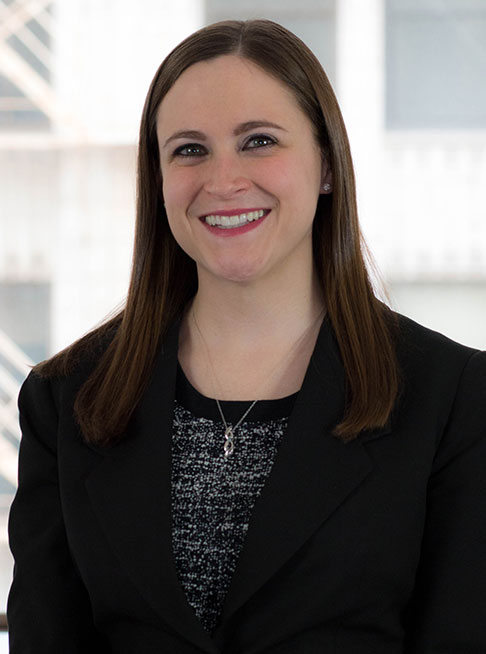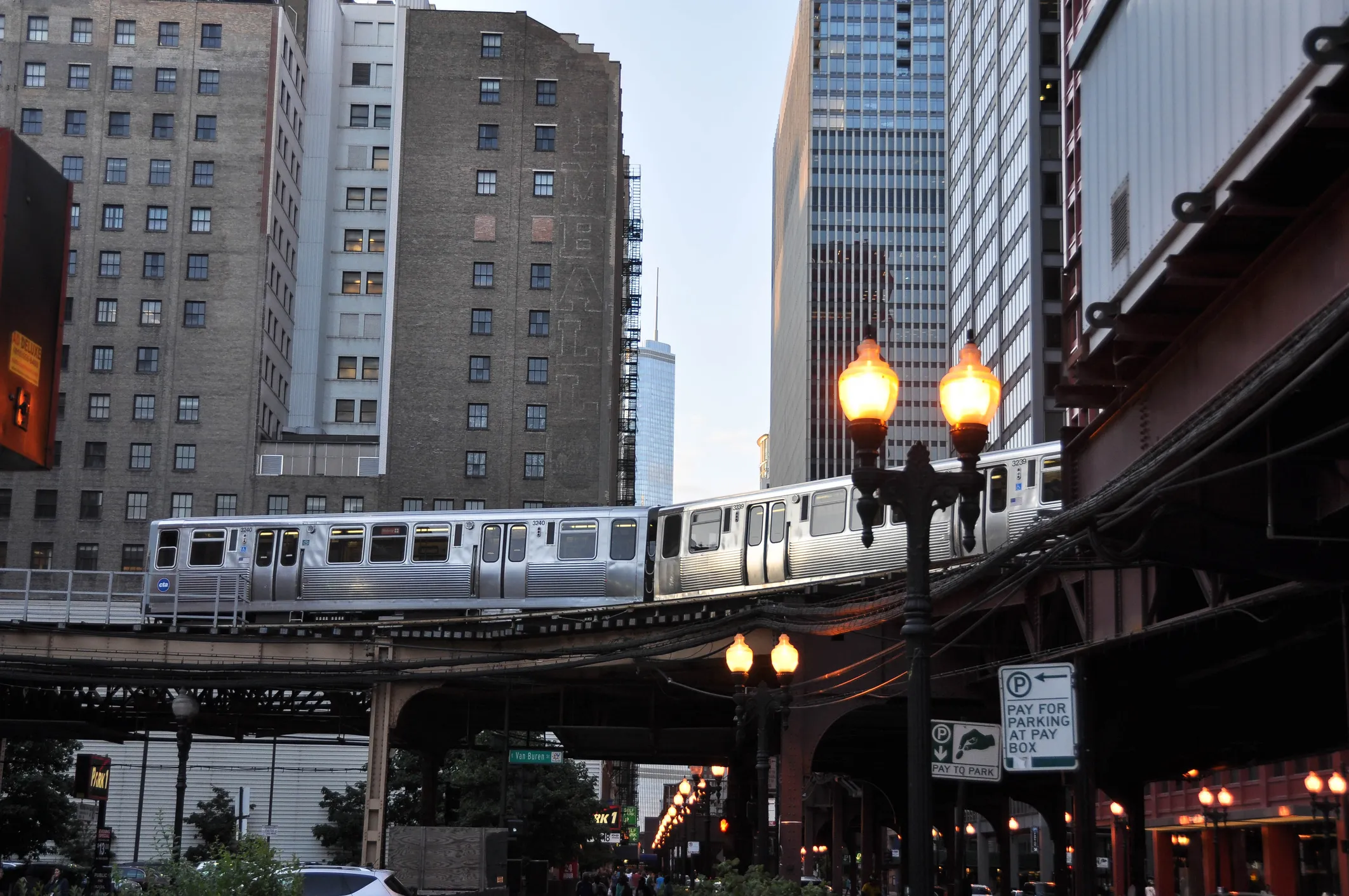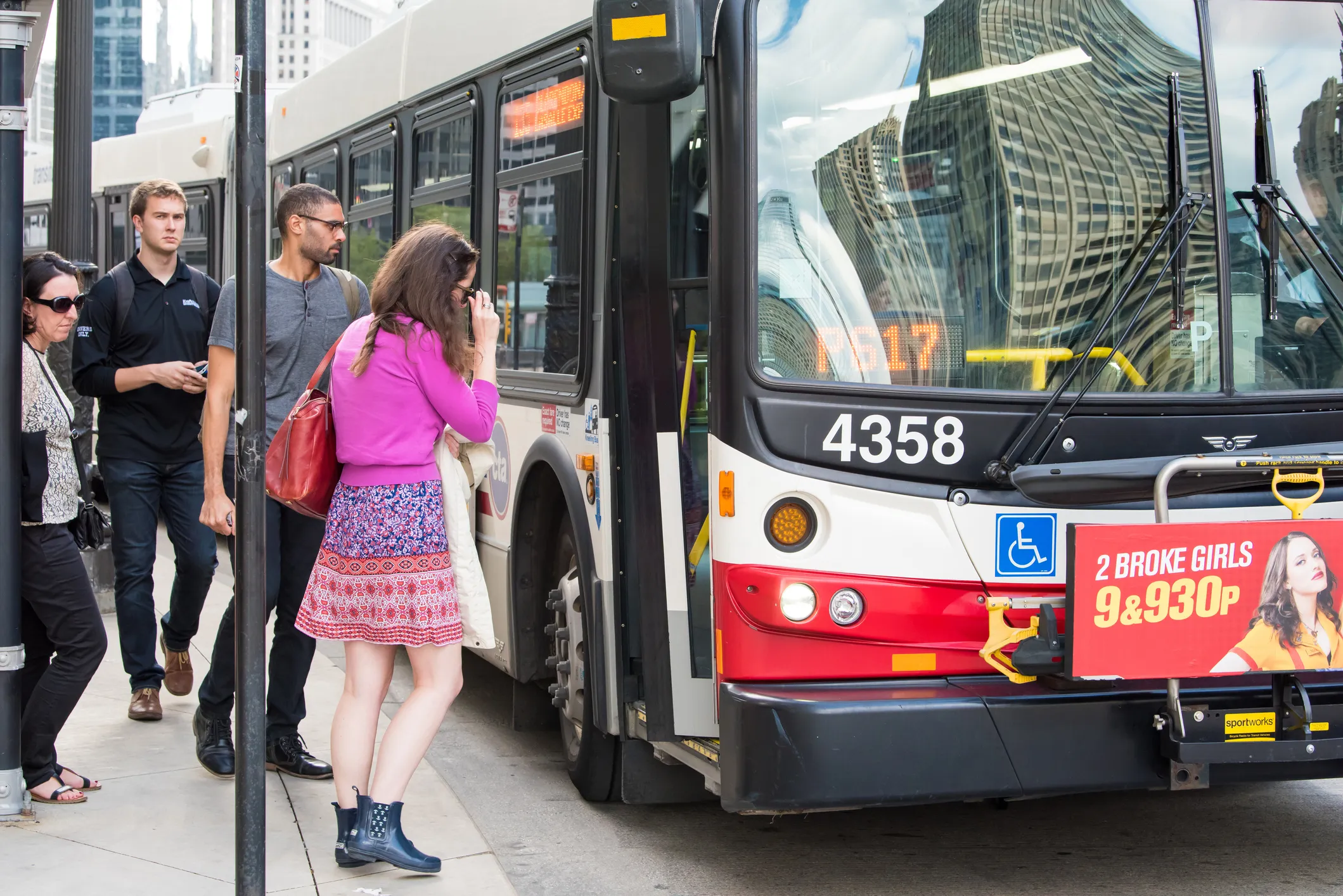Whether commuting on the L to work in the city, sending your kids off to school on the bus, or calling a rideshare for a night out on the town, you probably use Chicago public transportation more often than you think.
Cases involving any form of public transport are often more complicated than a crash between two private drivers. To get the maximum compensation you deserve after a public transit crash, turn to the legal team at Horwitz, Horwitz & Associates. An experienced Chicago public transportation accident lawyer can help you understand your rights and demand full and fair compensation for your losses.
We offer a free initial consultation, so you have nothing to lose. Call us today at (800) 985-1819.
Public transportation accidents we handle in Chicago
Our CTA accident lawyers handle the following common types of public transportation accidents. Don’t worry if you don’t see the specific vehicle involved in your accident on this list. Call us to talk about your situation and receive personalized legal advice.
Bus accidents (CTA, PACE, Greyhound)
Buses have a high center of gravity, making them difficult to maneuver, especially along tight streets or high-traffic areas. Even slower-moving school buses can be a danger to pedestrians or other drivers on the road.
Passengers on the bus can get hurt, especially since few buses have seat belts. When commuter traffic is busy, many people aboard the bus may be standing up, which could increase the likelihood of a severe injury.
Bus accidents can also occur if the driver hits a stationary object, like a recent accident where a CTA bus hit a pole, causing serious injuries to multiple people. Regardless of how the accident happened, as the victim, you can demand compensation.
Train accidents (CTA, Metra)
Derailments and other train collisions may hurt even more people since they hold more passengers than a bus. Whether you suffer an injury on the train, on the tracks, or on the platform, you could suffer a permanently disabling injury.
Taxi accidents
Because taxi drivers earn more by securing more fares, they are interested in getting to their destination as quickly as possible to snag another paying rider.
Therefore, it’s not unusual for a taxi driver to exceed the speed limit or skirt traffic signals to cut a few precious minutes off their trip time. Taxi accident suits can be complex, as the driver and the taxi company may share liability in a wreck.
Rideshare accidents
Uber and Lyft have made it so simple to queue up a ride in an instant, but ridesharing isn’t without risk. First, the drivers are just ordinary people, not trained professional drivers. Second, rideshare drivers also get paid based on how many fares they book, and they, like taxi drivers, may be more likely to cut safety corners to arrive at a destination faster.
Also, an Uber or Lyft driver may be more likely to be engaged on their phone while driving or while en route to pick up a fare. They could be looking at the GPS, programming their trip, or otherwise engaging with the company app.
While Uber and Lyft claim to fully vet their drivers, there’s still a chance that an unqualified driver, or someone else using a registered driver’s account, could slip through.
Uber and Lyft provide insurance coverage to drivers while they are on their way to pick up a fare or transport the passenger, although securing the insurance payout can be difficult.
How can a Chicago public transportation accident lawyer help me?
Public transportation suits are complex personal injury cases in which the issue of liability is often unclear. Additionally, these cases often have multiple defendants and plaintiffs, so sorting out who is responsible and what they owe each victim gets tricky.
A Chicago public transportation injury lawyer can sort through the mess and help advance your interests and protect your rights. Some of the services our legal team provides include:
- Independently investigating the incident and gathering evidence to establish liability
- Determining all possible defendants in your claim and assigning liability to each
- Drafting your lawsuit and filing it in the correct Illinois civil court within the state’s statute of limitations for public transportation injury claims
- Interviewing witnesses to build your case
- Analyzing safety and maintenance records of the vehicle in question and the driver’s record, including their training and certifications
- Negotiating with the defendant’s insurance company for a fair settlement
- Litigating your case in court if we cannot get fair compensation
What damages may I be entitled to after an accident on a public bus, train, or taxi?
Damages in a public transportation accident include your out-of-pocket costs, like medical care and a hospital stay, prescription medications, and physical therapy. If you missed work because of your injuries, you may receive compensation for lost wages and loss of earning potential.
You’re also entitled to compensation for pain and suffering, emotional trauma, and a diminished quality of life. These intangible losses still have value, and you deserve compensation for having your life changed.
In many public transportation suits, the defendant may also be assessed punitive damages, which are punishing in nature and not compensatory. Suppose your lawyer determines that the public transportation company (or other defendant) acted with egregious disregard for the safety of passengers and others. In that case, they may ask a jury to award extra compensation.
How often do incidents occur on CTA buses and trains?
According to the Federal Motor Carrier Safety Administration (FMCSA), there were 670 bus collisions in 2021, 738 in 2022, and by the end of August 2023, 434. While fatalities in bus accidents are rare, serious injuries aren’t.
Illinois has the second-highest number of railway crossings of any state in the nation, which increases the likelihood of a crash. Illinois saw 148 train collisions in 2022 alone, resulting in 30 fatalities and 45 injuries.
Why do public transportation accidents occur in Chicago? Why are they so dangerous?
Public transportation accidents are so dangerous partly because of the sheer size difference between the bus or train and a passenger vehicle or someone on foot. The force behind the collision is much greater than being hit by a car, so injuries are often much more severe. Riders on the L or a bus usually aren’t buckled up, leading to more injuries.
Many public transportation accidents in Chicago result from:
- Operator error or poor training
- Distractions, like using a phone, eating and drinking, putting on makeup, or selecting a podcast or playlist
- Operator fatigue, which can be just as dangerous as operating under the influence of alcohol or drugs
- Careless driving or failure to follow traffic signals and other rules of the road
- Impaired driving or operating, like using drugs or alcohol
- Mechanical problems or defective machinery or parts
- Failure to follow FMCSA or Commercial Drivers License (CDL) regulations
- Failure of the municipality responsible for safe roadways or train tracks to adequately maintain a safe operating surface
What kinds of injuries are common in public transportation accidents?
Public transit injuries run the gamut from a few bruises to permanent disability. Our clients have suffered many types of serious public transportation accident injuries, like:
- Concussions and brain injuries
- Facial lacerations and disfigurement
- Burns
- Fractures and broken bones
- Soft tissue injuries, like strains or sprains
- Spinal cord damage, including partial or total paralysis
- Involuntary amputation
- Crushing injuries
- Internal organ damage or internal bleeding
- Vision or hearing loss
- Whiplash or other neck injuries
Many people suffer multiple injuries, which can make going to work or caring for your family difficult. We’re here to help you get the money you need for medical care and to take care of your family.
Who may be liable for my injury?
Usually, determining the cause of the crash will lead to the party or parties responsible, who are therefore liable for your injuries and other losses.
Some cases have multiple defendants, so we build cases against each liable party. At-fault parties can include:
- The driver or operator
- A pedestrian crossing in front of the vehicle
- The City of Chicago or another municipality
- The public transportation company
- The rideshare company
- A mechanic who performed an incorrect repair
- The vehicle manufacturer, if a defective vehicle caused the wreck
Hurt on a public bus, train, or taxi? Our Chicago public transportation accident lawyers can help.
Do you need help from a Chicago CTA bus accident lawyer? Have you been hurt in a public transportation accident and have trouble getting the compensation you’re entitled to? The legal professionals at Horwitz, Horwitz & Associates have the depth of experience and knowledge you need for even the most difficult public transportation claim.
We’re on your side and ready to fight for your rights. Call us at (800) 985-1819 for a free consultation.










